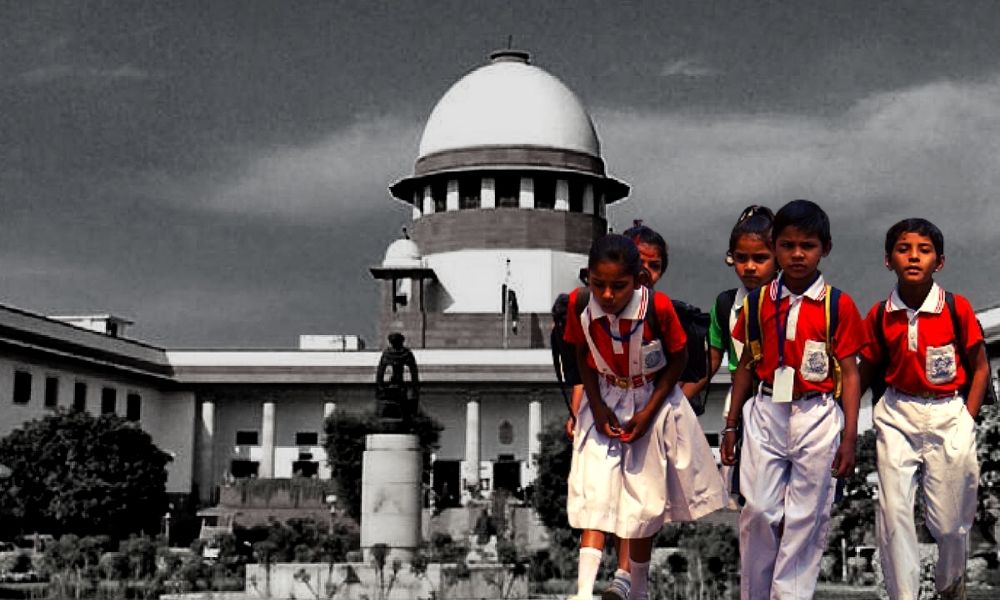
Image Credits: The New Indian Express, Pixabay
'Can't Charge Students For Unused Facilities': Supreme Court Instructs Rajasthan Schools To Reduce Fees
Rajasthan, 5 May 2021 4:05 AM GMT
Editor : Palak Agrawal |
Palak a journalism graduate believes in simplifying the complicated and writing about the extraordinary lives of ordinary people. She calls herself a " hodophile" or in layman words- a person who loves to travel.
Creatives : Palak Agrawal
Palak a journalism graduate believes in simplifying the complicated and writing about the extraordinary lives of ordinary people. She calls herself a " hodophile" or in layman words- a person who loves to travel.
The Apex Court said that educational institutions should reduce fees as their running cost has also decreased with several facilities provided on campus being closed amid the pandemic.
The Supreme Court, on Monday, May 3 said that the educational institutions are resorting to 'profiteering' and 'commercialization' on demanding fees from students for the facilities not availed due to the lockdown restrictions
It said that such institutions should reduce fees as their running cost has also decreased with several facilities provided on campus being closed amid the pandemic.
A bench of Justices A M Khanwilkar and Dinesh Maheshwari said educational institutions take cognisance of the difficulties people are experiencing as a result of the pandemic and take action to support students and their parents to tide over the crisis.
It stated that demanding payment for services not given to students amounted to profiteering, which schools should stop.
"It is a well-known fact and judicial notice can also be taken that due to complete lockdown, schools were not allowed to open for a substantially long period during the academic year 2020-21. Resultantly, the school management must have saved overheads and recurring cost on various items such as petrol/diesel, electricity, maintenance cost, water charges, stationery charges, etc," the bench said, reported LiveLaw.
The bench held that there is no law mandating the state government to pass such an order, but decided that the schools had to reduce the fees while adjudicating a batch of petitions from private unaided schools in Rajasthan against the state government's directive to them to forego 30 per cent of tuition fees during the pandemic.
The parents, who are seeking a fee reduction, told the court that during the online lessons, the schools saved a huge sum of money on power, water, stationery, and other miscellaneous charges that are needed during the physical operation of the school.
Agreeing with the parents' contention, the bench said, "Indeed, overheads and operational costs so saved would be nothing, but an amount undeservedly earned by the school without offering such facilities to the students during the relevant period ... the principle of quid pro quo must come into play. However, no accurate (factual) empirical data has been furnished by either side about the extent to which such savings have been or could have been made or benefits derived by the school management. Without insisting for mathematical exactitude approach, we would assume that the school management(s) must have saved around 15 percent of the annual school fees."
The Apex Court also instructed the schools to not debar any student from attending online or offline classes in relation to the non-payment of fees or in case of arrears/outstanding fees.
Also Read: Bengaluru: Karnataka Government Appoints Nodal Officer To Help Children Who Lost Parents To COVID-19
 All section
All section













